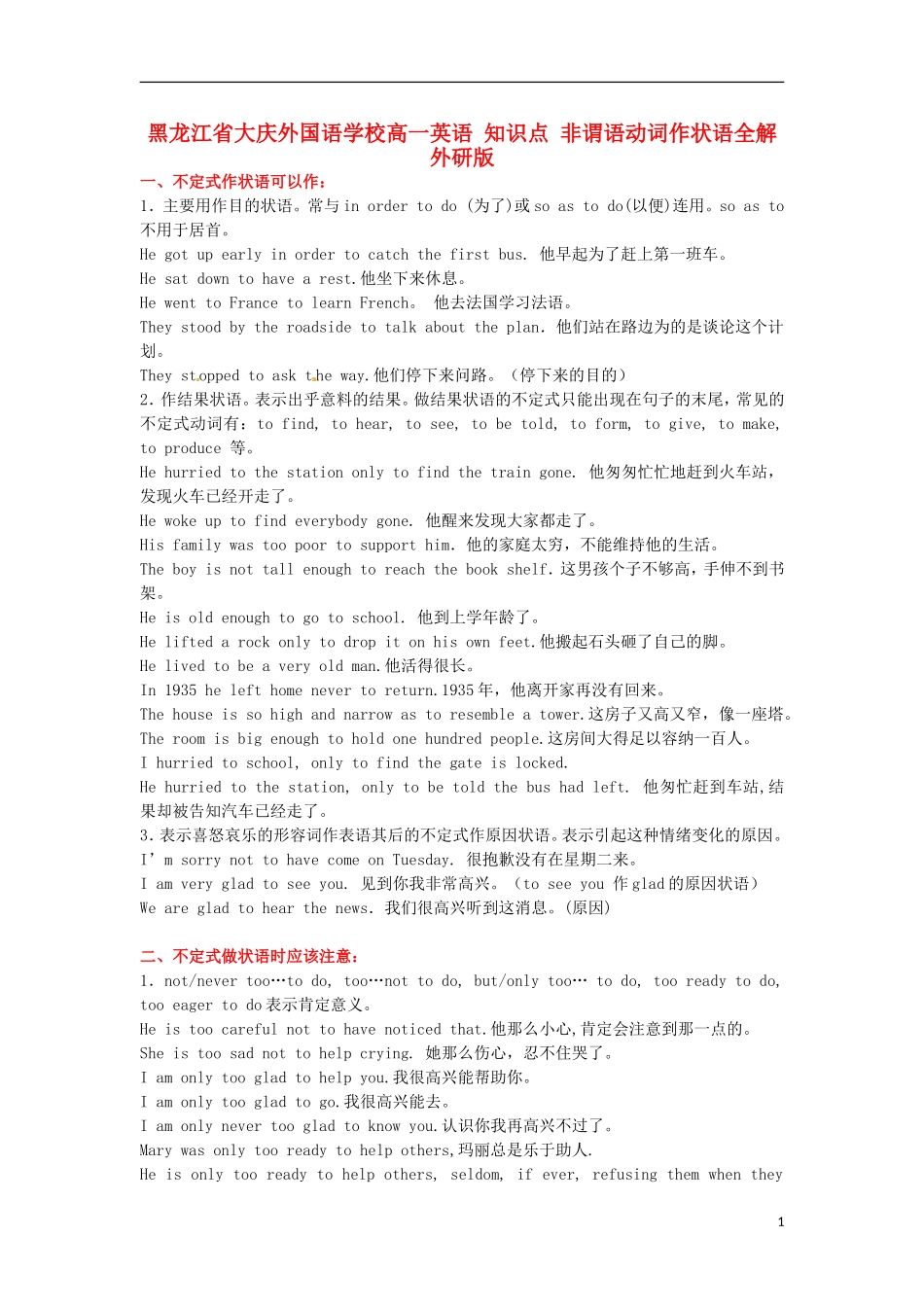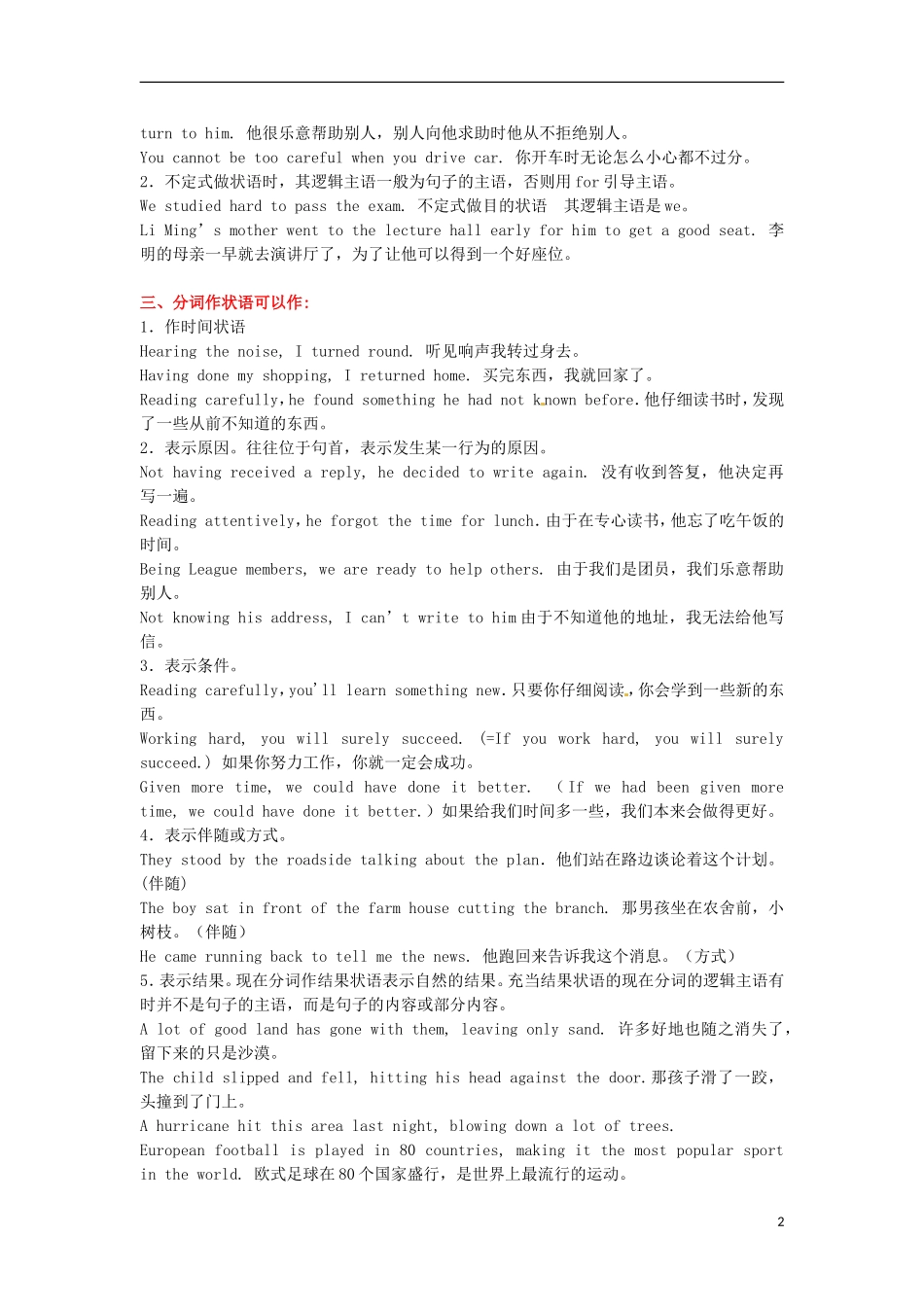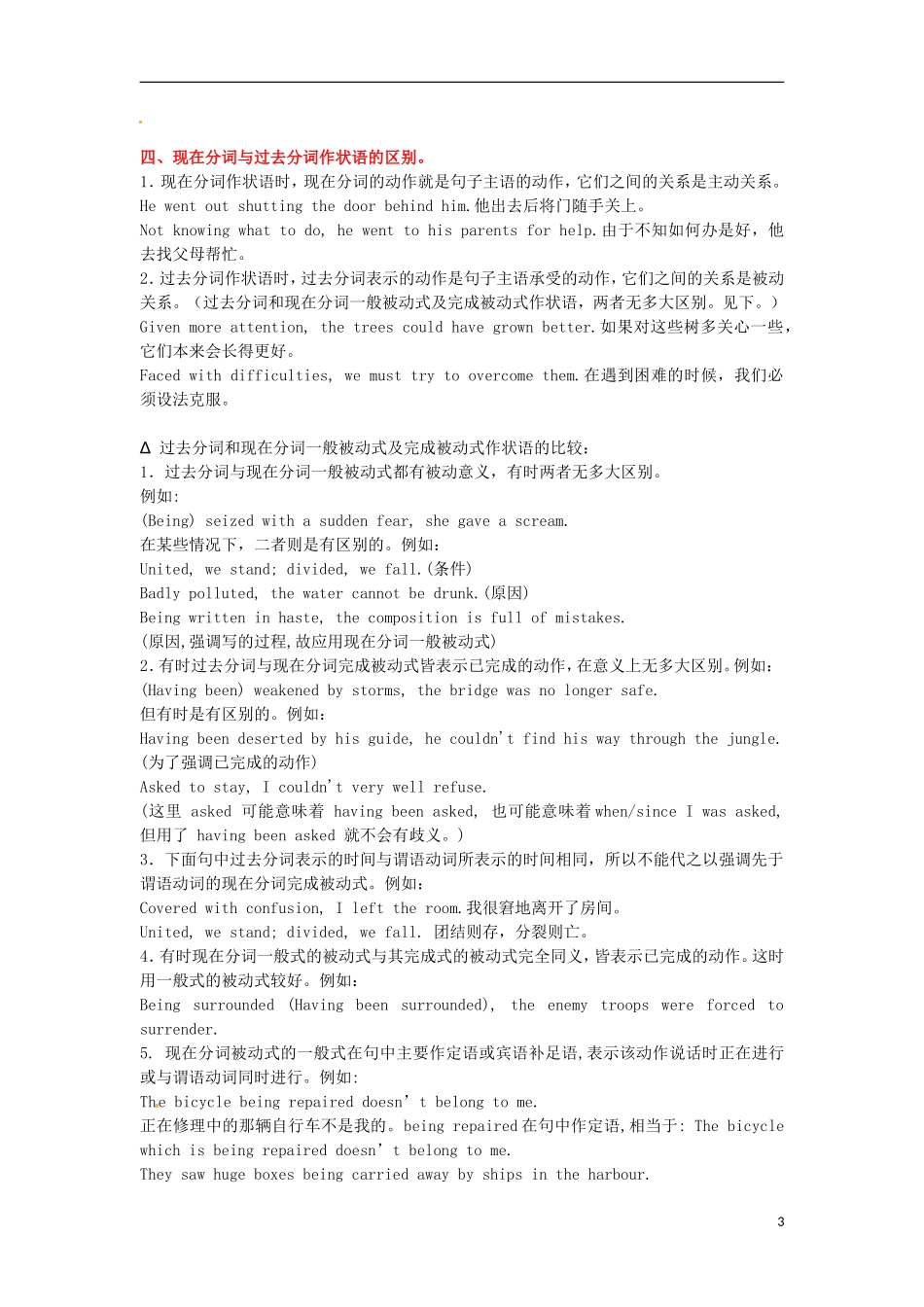黑龙江省大庆外国语学校高一英语 知识点 非谓语动词作状语全解 外研版一、不定式作状语可以作:1.主要用作目的状语。常与 in order to do (为了)或 so as to do(以便)连用。so as to 不用于居首。He got up early in order to catch the first bus. 他早起为了赶上第一班车。He sat down to have a rest.他坐下来休息。He went to France to learn French。 他去法国学习法语。They stood by the roadside to talk about the plan.他们站在路边为的是谈论这个计划。They stopped to ask t he way.他们停下来问路。(停下来的目的)2.作结果状语。表示出乎意料的结果。做结果状语的不定式只能出现在句子的末尾,常见的不定式动词有:to find, to hear, to see, to be told, to form, to give, to make, to produce 等。He hurried to the station only to find the train gone. 他匆匆忙忙地赶到火车站,发现火车已经开走了。He woke up to find everybody gone. 他醒来发现大家都走了。His family was too poor to support him.他的家庭太穷,不能维持他的生活。The boy is not tall enough to reach the book shelf.这男孩个子不够高,手伸不到书架。He is old enough to go to school. 他到上学年龄了。He lifted a rock only to drop it on his own feet.他搬起石头砸了自己的脚。He lived to be a very old man.他活得很长。In 1935 he left home never to return.1935 年,他离开家再没有回来。The house is so high and narrow as to resemble a tower.这房子又高又窄,像一座塔。The room is big enough to hold one hundred people.这房间大得足以容纳一百人。I hurried to school, only to find the gate is locked.He hurried to the station, only to be told the bus had left. 他匆忙赶到车站,结果却被告知汽车已经走了。3.表示喜怒哀乐的形容词作表语其后的不定式作原因状语。表示引起这种情绪变化的原因。I’m sorry not to have come on Tuesday. 很抱歉没有在星期二来。I am very glad to see you. 见到你我非常高兴。(to see you 作 glad 的原因状语)We are glad to hear the news.我们很高兴听...


